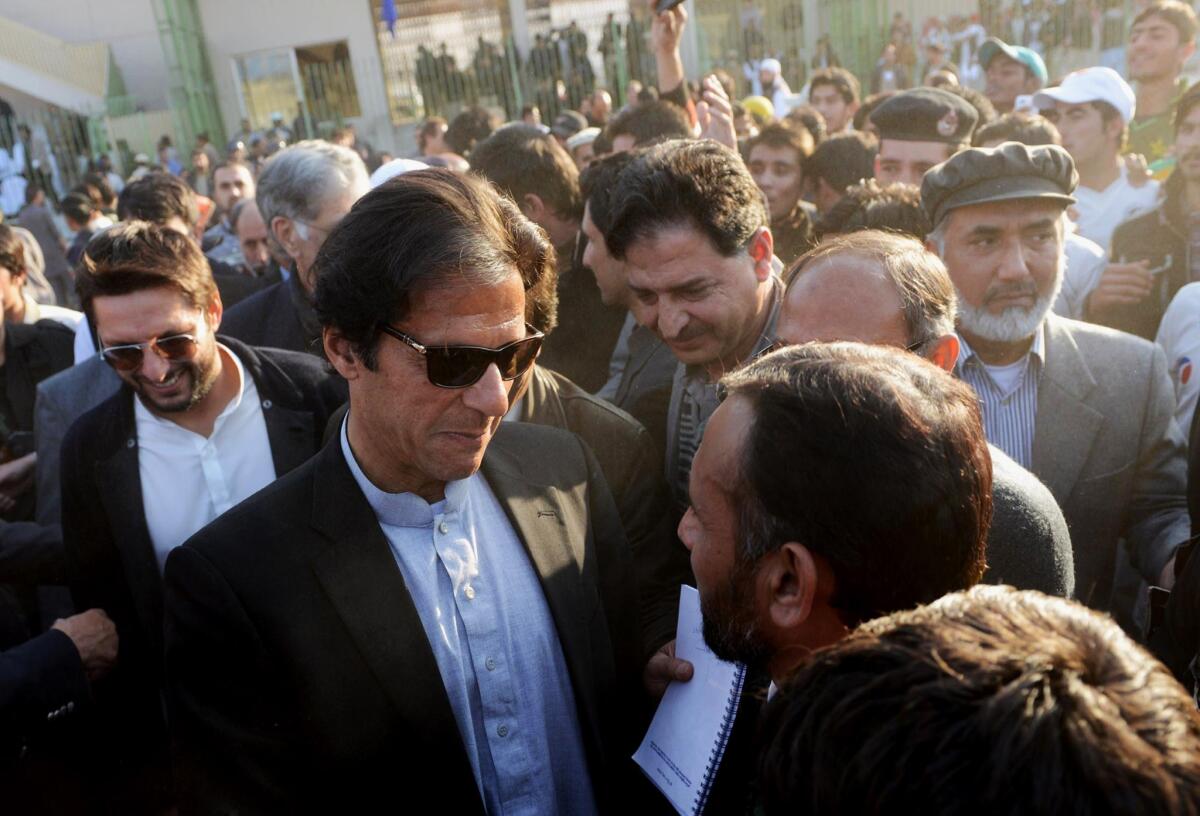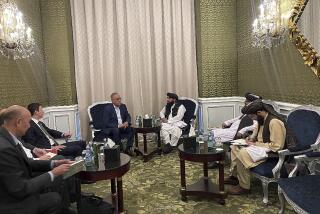Pakistan, Taliban talks gain momentum

- Share via
PESHAWAR, Pakistan – The Pakistani government’s efforts to open peace talks with Islamist insurgents gathered steam Saturday when Taliban leaders nominated a five-member committee to represent them at the negotiating table.
One of the five, however, was Pakistani opposition politician Imran Khan, who signaled late Saturday that he would decline the nomination. The other four nominees, all conservative Muslim clerics, appeared willing to represent the Pakistani Taliban in talks.
Pakistani Prime Minister Nawaz Sharif surprised many observers last week by naming a four-man government commission to start negotiations with the Taliban despite insurgents’ recent attacks aimed mainly at military installations. The Pakistani military responded with a flurry of airstrikes on suspected insurgent hideouts in the northwestern tribal areas.
Sharif, who was elected in May after pledging to reach out to insurgents, has been under pressure from U.S. officials to crack down on militants and has faced withering criticism at home for appearing powerless in the face of continuing militant attacks. He appointed a commission made up of two veteran journalists, a retired diplomat and a retired intelligence official to open talks. “I am sure the whole nation would be behind the government if and when we launch a military operation against the terrorists, but I want to give peace a final chance,” Sharif told lawmakers.
The Pakistani Taliban, whose leader Hakimullah Mehsud was killed in a U.S. drone strike in November, raised no objection to Sharif’s choices for the negotiating team.
But Sharif hasn’t declared a date to begin formal talks, and few Pakistanis are optimistic about negotations after years of militants’ attacks on army and civilian targets. Some elements inside Pakistan’s powerful army and intelligence service also are reluctant to push too hard against the militants in a year when U.S.-led NATO forces are due to withdraw from neighboring Afghanistan, where insurgents loosely aligned with the Pakistani Taliban have stepped up attacks against the government in Kabul.
Shahid Ullah Shahid, a spokesman for the banned militant group, said by phone from an unspecified location that the Taliban “had approached the concerned personalities and sought their approval” before nominating them for the talks.
But Khan, the cricket star-turned politician who has been a vocal proponent of opening talks with the insurgents, said the Taliban should select “its own people” as representatives. A spokeswoman for Khan’s Tehreek-e-Insaf party, Shireen Mazari, said the party supported the government commission and expressed hope that “it would start meaningful talks.”
There was no immediate reaction from the Taliban to Khan’s apparent refusal to accept the nomination. Khan said his party would hold a meeting Monday to discuss the issue.
[For the record, 6:55 p.m. Feb. 1: A previous version of this post referred to insurgent hideouts in northeastern tribal areas, instead of northwestern.]
Ali and Sahi are Times special correspondents. Ali reported from Peshawar and Sahi from Islamabad.
More to Read
Sign up for Essential California
The most important California stories and recommendations in your inbox every morning.
You may occasionally receive promotional content from the Los Angeles Times.










